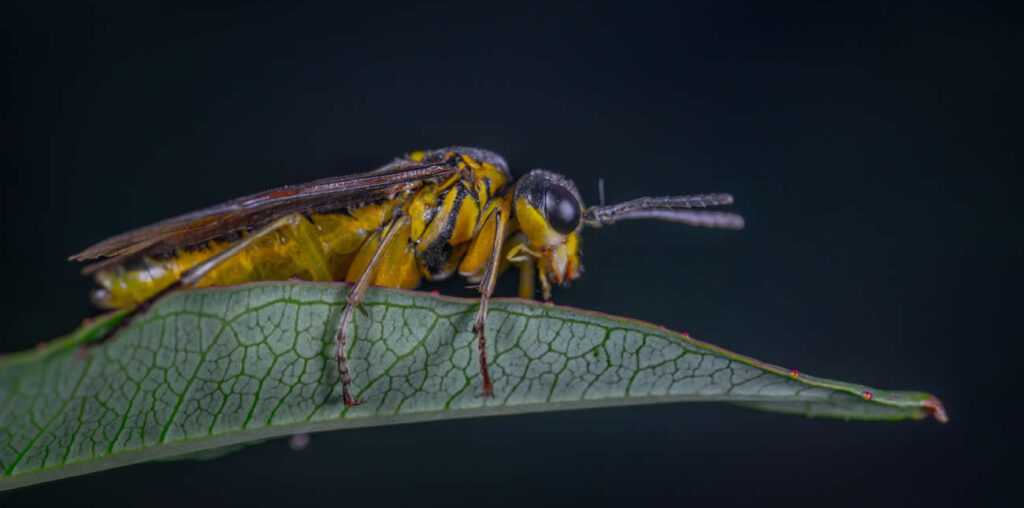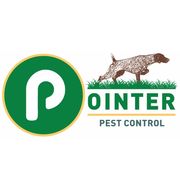You’ve probably seen it mentioned in a blog, on social media, or maybe even heard it from a friend: peppermint oil spray keeps wasps away. It sounds simple, right? Mix a few drops of oil with some water, spray it around, and your wasp problem disappears. But does it really work like that? Can something as natural and gentle as peppermint oil actually stop wasps from coming near your home or garden?
If you’ve been wondering whether this method is worth trying, you’re not alone. A lot of people are looking for safer ways to deal with pests—especially ones that don’t involve harsh chemicals. In this post, you’ll find out what peppermint oil can do, what it can’t, and how to use it properly if you want to give it a try.
Let’s get into it.
Why people say peppermint oil works
Wasps rely heavily on smell to find food, mark territory, and identify threats. That’s why strong smells can sometimes disrupt their behaviour. Peppermint oil has a strong, sharp scent that lingers in the air, and that’s where this idea starts.
Some people believe wasps find the smell of peppermint oil overpowering or unpleasant. The theory is that, when you spray it in key areas, they’ll avoid those spaces. It’s not about killing them—it’s more about creating an environment they don’t want to be in.
You’ll also hear about peppermint oil being used for ants, spiders, or even mice. It’s often promoted as a natural pest deterrent. But each pest is different, and what works on one might not do much for another.
What the science says
There’s not loads of research on essential oils and wasps, but there are a few studies that point in the right direction.
One study in particular looked at how certain essential oils affect insect behaviour. Peppermint oil came up as one of the more effective ones for repelling pests, especially in controlled environments. The strong smell seemed to confuse or overwhelm the insects, making them stay away.
That said, the way wasps behave in a lab isn’t always the same as how they behave in your garden. Out in the real world, things are less predictable. Wind can carry the scent away. Rain can wash it off. And if there’s food around, wasps might ignore the smell altogether.
So while peppermint oil does seem to have a repelling effect, it’s not guaranteed. It might reduce the number of wasps, or it might just move them from one spot to another.
What peppermint oil won’t do
It’s worth being clear about what peppermint oil can’t do. If you’ve got a nest in or near your home, peppermint oil isn’t going to get rid of it. Wasps don’t just give up a nest because the air smells minty. They’re territorial and will defend their space if they feel threatened.
Peppermint oil also won’t kill wasps. It’s not poisonous or dangerous to them in small amounts. It might annoy them, and it might even make them fly off for a bit, but it doesn’t solve the core issue if you’ve got an infestation.
So think of it more as a deterrent than a solution. It’s a way to make areas less appealing—not a way to stop wasps completely.
How to use peppermint oil to keep wasps away
If you want to try it, the best approach is to use it as a spray. You don’t need anything complicated, just a clean spray bottle, some peppermint oil, and water.
Here’s a basic recipe:
- 10–15 drops of pure peppermint oil
- 250ml of water
- A few drops of washing-up liquid (optional—it helps the oil mix better)
Give the bottle a good shake before each use. Essential oils don’t mix naturally with water, so you’ll need to shake it every time to keep it consistent.
Once you’ve got your spray ready, focus on where you use it. Wasps are drawn to food and shelter, so spray in areas where they’re likely to land or build nests. Think about places like:
- Eaves and rooflines
- Window sills
- Door frames
- Outdoor tables and chairs
- Bin lids
Don’t just spray it once and forget. The scent wears off over time, especially if it rains or the wind picks up. Reapply every few days to keep the smell strong.
Try it in the early season
If you’re going to give peppermint oil a go, the best time to start is early spring. That’s when wasps are just starting to build nests and settle into spaces. If you make those areas smell unpleasant from the start, they might decide to go elsewhere.
Once a nest is active, peppermint oil won’t do much. The wasps are already invested in that spot, and they’ll usually ignore mild discomfort if it means protecting their home.
So start early if you can. It gives you the best chance of success.
Does it work for everyone?
Some people swear by peppermint oil. They’ll tell you it worked instantly, or that they haven’t seen a wasp all summer. Others say it didn’t help at all.
The truth probably sits somewhere in the middle. If you’re using it regularly, in the right places, and the wasp activity isn’t too bad, it can make a difference. But if you’re dealing with a large nest or a high wasp population, it’s not going to be enough on its own.
Like with any pest control method, results vary based on your environment, how often you apply it, and how serious the issue is.
What to watch out for
Peppermint oil is generally safe to use, but you should still be a bit careful.
- Don’t spray it directly on your skin, especially without diluting it. Essential oils can cause irritation or reactions.
- Keep it away from your eyes and mouth.
- Store it somewhere cool and dry, out of reach of pets or children.
- If you’ve got pets, check that they’re not sensitive to essential oils. Cats, in particular, can be affected by strong scents.
Use it responsibly, and you shouldn’t have any issues.
Other natural methods to try
If you want to boost your chances, you can use peppermint oil alongside other simple tricks. Again, these won’t solve big wasp problems, but they might help reduce visits to your home or garden.
A few things you could try:
- Keep bins sealed tight, especially food waste
- Don’t leave sweet drinks or food outside unattended
- Cover compost heaps or fruit trees, if possible
- Hang decoy nests—wasps tend to avoid nesting where other colonies already exist
These don’t require chemicals, and they’re easy to do alongside using peppermint oil spray.
What to do if peppermint oil doesn’t work
If you’ve tried peppermint oil and wasps are still hanging around, it might be time to look for other causes. Sometimes there’s food or shelter you haven’t noticed. Other times, there could be a hidden nest nearby.
Check around your home and garden. Look in loft spaces, under decking, inside sheds, and behind outdoor cladding. Wasps love quiet, undisturbed areas. If you spot a lot of wasps flying in and out of a specific spot, you might have a nest.
Don’t try to remove a nest yourself, especially if it’s large or hard to reach. Call a pest control service—they’ll deal with it safely and properly.
Final thoughts
So, does peppermint oil spray keep the wasps away?
Yes—sometimes. It depends on where you live, how many wasps are around, and how early you start using it. It won’t kill wasps or remove nests, but it can make your space less inviting. If you’re after a gentle, natural method to reduce wasp activity, it’s worth trying.
Just remember to keep your expectations realistic. Use it regularly, spray it in the right places, and combine it with other basic precautions. It won’t work for every situation, but it might be enough to give you a bit of peace when you’re enjoying time outside.
If you do find that it’s not helping, or the wasps keep coming back, it’s okay to look for stronger solutions. There’s no shame in getting professional help when you need it.
Whatever you choose, the goal is simple—make your home a space where you feel safe and comfortable, without worrying about wasps buzzing around your head.



